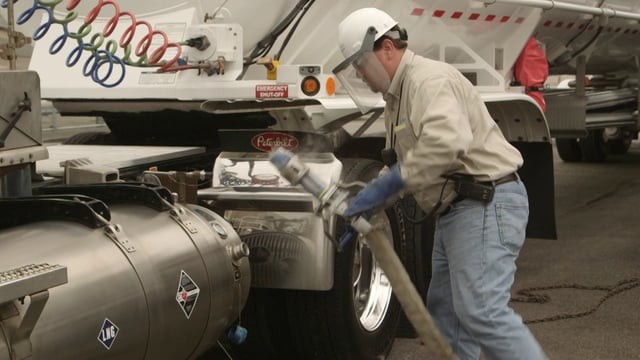Slovenian Researchers Help Develop Clean Alternative to Diesel Generators for Trucks
Published on 23 july 2015The 3-kilowatt prototype generator taps fuel cell technology by first drawing hydrogen from diesel fuel which is in turn fed into the fuel cells that produce electricity.
The end result, according to the IJS coordinator for the project, is a method that produces power by using much less fuel and with much less noise than a conventional diesel generator or a diesel engine.
"The project was intended to provide a solution for use in trucks to power important systems during extended stops, such as temperature control in the cabin where the driver rests," said Boštjan Pregelj.
The IJS contributed guidance to the project and many of the control systems, including electronics and algorithms.
A key feature of the generator is the ability to rely on diesel fuel as the primary source of hydrogen needed to power the fuel cells. "This is important because diesel is widely accessible."
Trucks running on diesel will therefore be able to use their fuel tanks to provide the hydrogen needed to power the generator, which in turn is much more efficient in providing power during stops than running the truck engine.
"The generator uses just 20% of the fuel that a truck's engine would to produce the required power," explained Pregelj, who said the efficiency comparison with diesel generators showed it was more than twice as efficient.
Subsequently emissions are greatly reduced and, in the absence of internal combustion, virtually free of poisonous air pollutants such as sulphur and nitrogen oxides.
The generator is also much more quiet to operate than conventional diesel generators. "You would be able to have a pretty normal conversation with this generator in the same room, while this is completely impossible with traditional generators relying on internal combustion," said Pregelj.
The prototype was developed as part of a research project which drew EUR 9.3m from European funds and saw the IJS work with a host of European institutes and companies.
The chief coordinating partner was Swedish truck maker Volvo. Also involved were two other Swedish companies, Powercell and Modelon, along with Germany research institutes Forschungscentrum Jülich and Institut für Microtechnik Mainz, Britain's Johnson Matthey and the R&D department of Italian industrial giant Fiat.
With further development the application of such generators could be extended to include other uses, including in boats, campers, mountain cottages and for powering mobile telephony towers. While still at prototype level, the hope is to see it enter mass production in the coming years.
A key obstacle to uptake of the technology for everyday use is the price of fuel cell technology. One focus of the project was therefore to examine the possibilities for reducing costs of mass production. A general estimate is that to become price competitive for general use fuel cell technology needs to achieve a price of around EUR 1,000 per kilowatt of power.
"In the case of mass production of 100,000 units per year, we would currently be looking at a price of EUR 5,000 per 3-kilowatt unit at the existing level of technological development...But with additional development in fuel cell technology in general this is expected to drop by at least 40% in five years," said Pregelj.
Source: The Slovenia Times


